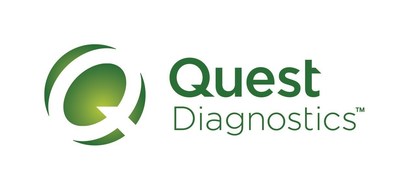BALTIMORE, Jan. 22, 2024 /PRNewswire/ -- Haystack Oncology, a Quest Diagnostics (NYSE: DGX) company and developer of best-in-class personalized MRD technology (Haystack MRD™), has entered a research collaboration with TriSalus Life Sciences to evaluate therapeutic response and provide molecular insights in connection with the clinical development of TriSalus' SD-101, an investigational class C toll-like receptor-9 (TLR9) agonist. SD-101 is delivered via hepatic arterial infusion or pancreatic retrograde venous infusion in their phase 1 and 1b clinical trials using their proprietary Pressure-Enabled Drug Delivery™ (PEDD™) to overcome the challenges associated with intratumoral pressure for patients diagnosed with hepatocellular carcinoma, intrahepatic cholangiocarcinoma, and pancreatic adenocarcinoma.
"Haystack MRD is specifically designed and developed to accurately detect circulating tumor DNA (ctDNA) with unparalleled sensitivity in patients with low tumor burden and in clinically challenging cancer types," said Dan Edelstein, Vice President and General Manager, Haystack Oncology. "Haystack MRD's sensitivity enables clinical investigators to closely follow molecular response and measure early evidence of treatment efficacy. We're excited to collaborate with TriSalus to support the clinical development of SD-101 in combination with their unique therapy delivery technology, which aims to overcome challenges associated with treating liver and pancreatic tumors."
Hepatocellular carcinoma is the most common form of liver cancer. Intrahepatic cholangiocarcinoma is cancer that occurs in the parts of the bile ducts that are within the liver. Pancreatic adenocarcinoma is the most common form of pancreatic cancer.
"A significant challenge in the development of immunotherapies for liver and pancreatic tumors is early measurement of response to treatment. Conventional imaging response assessment methods may be misleading in certain situations, and accurate ctDNA assays offer the potential to identify meaningful biologic activity in difficult to treat cancers," says Steven Katz, MD, Chief Medical Officer of TriSalus Life Sciences. "We are thrilled to work with Haystack in pursuit of our mission to develop better therapeutic options for patients with liver and pancreatic tumors."
About Haystack Oncology
Haystack Oncology represents the culmination of over 20 years of technical and clinical development in liquid biopsy technologies by cancer genomics pioneers at Johns Hopkins School of Medicine. The company, a wholly owned subsidiary of Quest Diagnostics, developed Haystack MRD™, a next generation tumor informed approach for the measurement of minimal residual disease. Haystack MRD uses an error-corrected ctDNA technology to detect down to one ctDNA molecule in a million. Haystack Oncology works with biopharmaceutical companies to accelerate and improve efficiency of clinical development programs and advance important therapeutics to global markets, from early phase clinical development to companion diagnostics. Haystack MRD (Research Use Only) is CLIA certified in the US and is available for biopharmaceutical clinical development in laboratories located in Baltimore, Maryland, Hamburg, Germany and Helsinki, Finland. Learn more at haystackoncology.com.
About Quest Diagnostics
Quest Diagnostics empowers people to take action to improve health outcomes. Derived from the world's largest database of clinical lab results, our diagnostic insights reveal new avenues to identify and treat disease, inspire healthy behaviors and improve health care management. Quest annually serves one in three adult Americans and half the physicians and hospitals in the United States, and our nearly 50,000 employees understand that, in the right hands and with the right context, our diagnostic insights can inspire actions that transform lives. www.QuestDiagnostics.com.
About TriSalus
TriSalus is an oncology company integrating immunotherapy with disruptive delivery technology to transform the treatment paradigm for patients with cancer. TriSalus' proprietary platform approach addresses immune dysfunction in liver and pancreatic tumors by combining its highly effective drug delivery technology with immunotherapeutics.
SOURCE Quest Diagnostics
